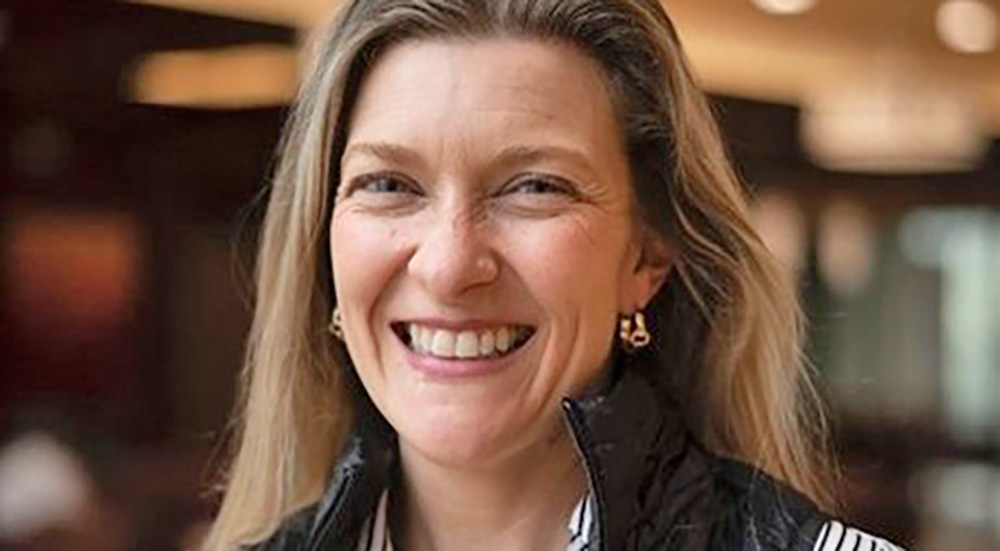VA’s National Oncology Program‘s female doctors are breaking new ground in how VA treats cancer. These leaders strive to reduce health inequalities, promote access to world-class cancer care, and stand shoulder to shoulder with Veterans as they battle cancer.
As we commemorate Women’s History Month, meet one of the many women paving the way for cancer care at VA.
Dr. Sarah Colonna is a medical oncologist specializing in breast cancer with a focus in clinical genetics at Huntsman Cancer Institute and at the George E. Wahlen VA in Salt Lake City. She serves as medical director of breast cancer for VA’s Breast and Gynecologic Oncology System of Excellence.
In addition, she treats Veterans with breast cancer across the country via the National TeleOncology Service. She led the effort to build breast cancer clinical pathways for VA and is the Principle Investigator of the Breast Cancer Family Registry, which has researched families at increased risk for breast cancer since the 1990s.
“I want Veterans to know they receive the most modern treatment.”
Colonna is also the mother of three kids and the proud wife of a five-times-deployed lieutenant colonel in the Army Reserve who often reminds her to “take good care of those soldiers.”
“I want women and men with breast cancer to know they are getting the most modern and effective breast cancer treatments and genomic testing from an experienced and academic team,” Colonna said. “I am honored and humbled to be able to provide breast cancer care for Veterans across the country. Our Veterans deserve the best.”
Colonna graduated from East Tennessee State University, Quillen College of Medicine. She completed her residency at Wake Forest University and her Fellowship at Vanderbilt University. Colonna is board certified in internal medicine and medical oncology.
Standing shoulder to shoulder with Veterans
VA is committed to improving the quality of life for Veterans who have cancer. Leaders at VA ensure that cancer screenings are offered to all Veterans and that the best available cancer treatment options—such as clinical trials—are used.
In addition, all VA health care professionals stand shoulder to shoulder with Veterans and assist them every step of the way in the battle against cancer.
Visit cancer.va.gov for further information.
Topics in this story
More Stories
VA’s latest data shows a decrease in the suicide rate among women Veterans, but more effective interventions and support systems are needed.
Making healthy choices about what you eat and drink is a powerful way to care for yourself. You need the right fuel to feel well and have the energy to do what matters most to you.
Blind TeleRehabilitation offers blind and visual impairment rehabilitation assessment, training, specialized technology and support groups.





